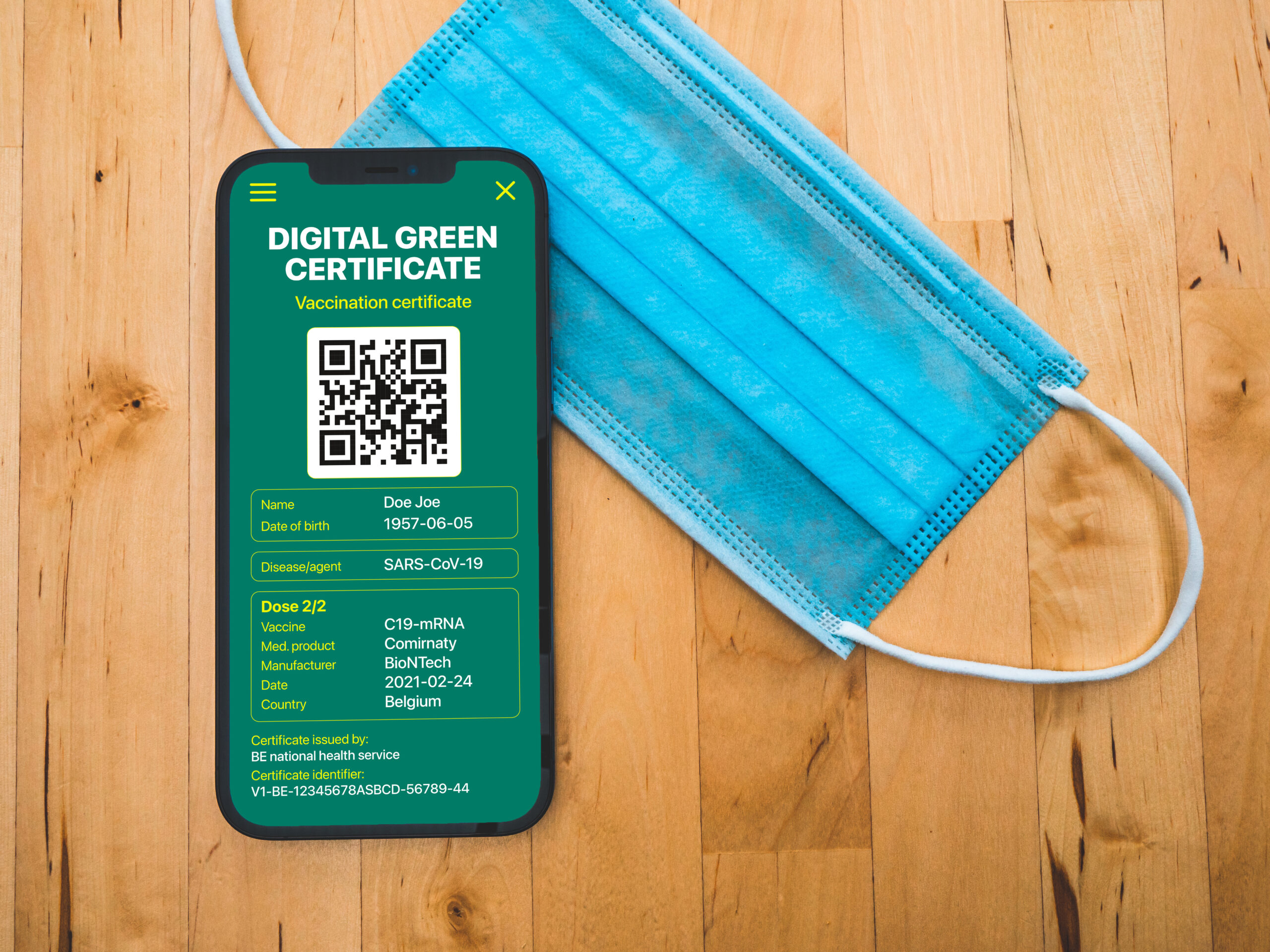The EU Digital Covid Certificate is the European Commission’s answer to a digital health passport, operational within the EU as a temporary measure until the pandemic is over. Olivia Palamountain reports
Digital health passports are being touted as a safe and efficient way to offer effective and authenticated proof of health and vaccination status as the world begins to get moving again.
However, the fact that no current standardised format exists means that it is difficult for authorities to ascertain the validity of the myriad options that are on offer and ensure that travellers receive the streamlined service that these initiatives promise.
To combat these issues within the EU, the European Commission is proposing its own digital health passport, the EU Digital Covid Certificate (formerly the Digital Green Certificate), which will display people’s vaccination status, test results and whether they have immunity from a Covid infection they have recovered from. It will be ready for use by the end of June, apparently.
The certificate will act as a temporary measure to facilitate safe free movement inside the EU as the Covid-19 pandemic continues. It will be suspended once the World Health Organization (WHO) declares the end of the Covid-19 international health emergency.
European Commission president, Ursula von der Leyen, says: “We are delivering on our commitment to have the EU Digital Covid Certificate up and running before the summer. European citizens are looking forward to travelling again, and today’s agreement means they will be able to do so safely very soon.

“The EU Digital Covid Certificate is free of charge, secure and accessible to all. It will cover vaccination, test and recovery offering different options to the citizens. It fully respects citizens’ fundamental rights, including protection of personal data.
“All EU citizens have a fundamental right to free movement in the EU. The EU Digital Covid Certificate, available in paper or digital format, will make it easier for Europeans to travel – whether to see their families and loved ones or to get some well-deserved rest.”
Similar to the likes of IATA’s Travel Pass, CommonPass, AOKpass, in use between Abu Dhabi and Pakistan, V-Health Passport and BA’s Verifly app, the EU Digital Covid Certificate will be a proof that a person has been vaccinated against Covid-19, received a negative test result or recovered from Covid-19 (the latter two options are in place to prevent discrimination against individuals who are not vaccinated).
The commission intends to build a gateway to ensure all certificates can be verified across the EU, and support member states in the technical implementation of certificates.
Data shy? The European Commission has stated that only essential information (such as name, date of birth, date of issuance, relevant information about vaccine/test/recovery and a unique identifier of the certificate) will be used to identify certificate holders, none of which will pass through the gateway, or will be retained by the verifying member state.
This data can be checked only to confirm and verify the authenticity and validity of certificates.
However, member states remain responsible to decide which public health restrictions can be waived for travellers but will have to apply such waivers in the same way to travellers holding a EU Digital Covid Certificate. The latest information on coronavirus measures as well as travel restrictions provided by member states are available on the Re-open EU platform.
The certificate will be available to download free of charge, in digital or paper format and will include a QR code to ensure security and authenticity of the certificate. It will be available in the official language or languages of the issuing member state as well as in English.
In order to be ready before the summer, the EU Digital Covid Certificate will need swift adoption by the European Parliament and the Council and will be valid (from July, with any luck) in all EU member states, plus Iceland, Liechtenstein, Norway as well as Switzerland. (But not the UK, now that it has left the EU.)
At least the people are on side – a study commissioned by Amadeus and delivered by Censuswide in late February 2021 found that just over nine in ten (91 per cent) of respondents said they would be comfortable using the technology for future trips. Read the full report here.

